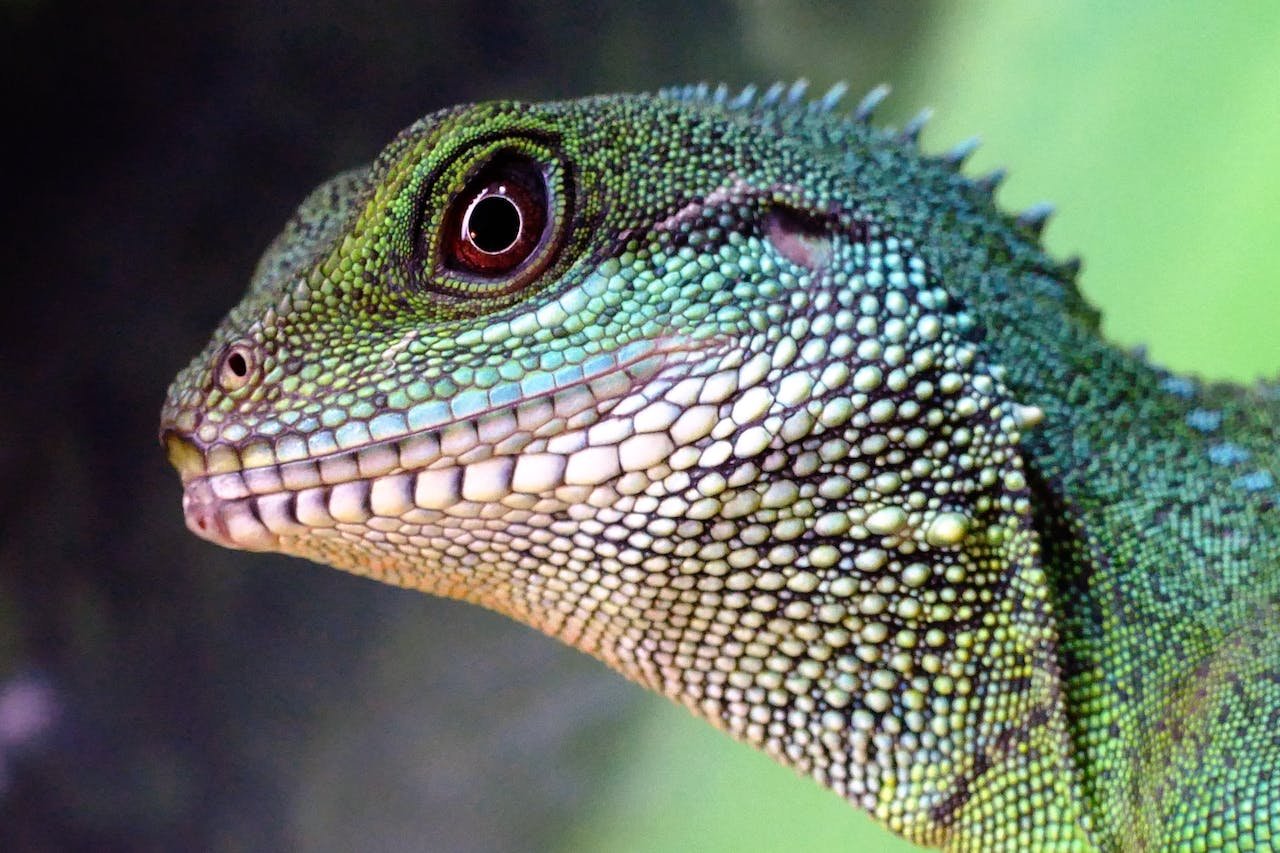Deciding to bring an exotic pet into your home is an exciting adventure, but choosing the right one requires careful consideration. In this blog post, we’ll provide a comprehensive guide on how to choose an exotic pet, exploring various options and factors to ensure a happy and fulfilling companionship.
Researching Exotic Pet Options

Diverse Exotic Pet Species
The world of exotic pets is incredibly diverse, ranging from reptiles and birds to small mammals and even insects. Take a closer look at various options such as snakes, parrots, hedgehogs, or tarantulas. Each species has unique characteristics, so understanding their traits is essential for making an informed decision.
When choosing an exotic pet, consider the specific needs and characteristics of different species. Snakes, known for their low maintenance, might appeal to reptile enthusiasts. Colorful and intelligent, parrots can be engaging companions. Hedgehogs offer a mix of quirkiness and charm, while tarantulas bring an exotic touch to arachnid lovers. Researching and understanding the needs of each species will help you make a choice that aligns with your preferences and lifestyle.
Assessing Commitment Levels

Understanding Time and Effort
Exotic pets come with varying levels of commitment. Some require intensive care and attention, while others are more independent. Consider the daily and long-term time commitments involved in feeding, cleaning, and providing mental stimulation.
Before bringing an exotic pet home, evaluate your availability and willingness to invest time and effort. High-maintenance pets like certain bird species or primates may require daily interaction, mental stimulation, and specialized care. On the other hand, low-maintenance options like reptiles might be suitable for individuals with busy schedules. Being realistic about your commitment level ensures a happy and healthy life for your exotic companion.
Consideration of Space Requirements

Adapting to Living Spaces
Different exotic pets have distinct space requirements. In this section, we’ve discussed the importance of assessing available living space, whether it’s a large enclosure for reptiles, a spacious cage for birds, or a comfortable tank for aquatic species. As a potential pet owner, it’s crucial to adapt your living spaces to meet the needs of your chosen exotic companions. For reptiles, ensure the enclosure mimics their natural habitat; for birds, provide plenty of room for flight and exploration; and for aquatic species, create a secure and enriching environment within a suitable tank.
Understanding and tailoring your living spaces to accommodate the specific needs of your exotic pet will contribute to a healthy and thriving companionship.
Exploring Legal Regulations

Compliance with Regulations: Before embarking on the journey of exotic pet ownership, it’s crucial to navigate and comply with legal regulations governing such companions. In this section, we’ll explore the importance of understanding and adhering to local and national regulations to ensure a responsible and lawful approach to exotic pet ownership.
Researching Local Regulations: Exotic pet ownership is subject to a range of regulations that vary by location. Research and familiarize yourself with the laws and guidelines specific to your city, state, or country. Regulations may cover the types of exotic pets allowed, permit requirements, and restrictions on breeding and selling.
Permits and Licenses: Some exotic pets may require permits or licenses for legal ownership. Understand the application process and any associated fees. Failure to obtain the necessary permits could result in legal consequences, including fines or the confiscation of your pet.
Restricted Species: Certain exotic species are classified as restricted or prohibited due to their potential impact on local ecosystems or public safety. Be aware of the list of restricted species in your area to avoid legal complications.
Ethical Sourcing: Purchase exotic pets from reputable and ethical sources. Some regions may have regulations in place to prevent the illegal trade of exotic animals. Choosing a responsible breeder or adopting from recognized organizations ensures compliance with legal and ethical standards.
Educational Requirements: In some cases, local regulations may require exotic pet owners to undergo educational programs or certification. These programs aim to equip owners with the knowledge and skills necessary for responsible pet care. Embrace these opportunities to enhance your understanding of your exotic companion’s needs.
Zoning and Housing Regulations: Consider zoning laws and housing regulations that may impact exotic pet ownership. Some areas have specific zoning requirements or restrictions on the size of enclosures, noise levels, or proximity to neighboring properties.
Legal Consequences of Non-Compliance: Understand the potential legal consequences of non-compliance with exotic pet regulations. These consequences can range from fines and penalties to the removal of the pet from your possession. Being aware of and adhering to legal requirements is essential for the well-being of both you and your exotic companion.
Advocacy for Responsible Ownership: Actively participate in advocating for responsible exotic pet ownership within your community. Support initiatives that promote ethical practices, conservation efforts, and the well-being of exotic animals. Collaboration with local authorities and organizations strengthens the bond between exotic pet enthusiasts and the broader community.
By exploring and adhering to legal regulations, you contribute to the welfare and conservation of exotic species while ensuring a positive and responsible experience as an exotic pet owner.
Analyzing Dietary Needs

Specialized Diets for Exotic Pets: Proper nutrition is a cornerstone of exotic pet care, and understanding the dietary needs of your unique companion is essential. In this section, we’ll delve into the specifics of feeding different exotic species and the importance of a well-balanced diet.
Species-Specific Diets: Each exotic pet species has its own dietary requirements. Whether you have a reptile, bird, mammal, or insect, research and understand the specific nutrients they need. Some may require a diet rich in live insects, while others thrive on a combination of fruits, vegetables, and high-quality commercial food.
Variety in Nutrition: Offering a diverse range of foods is crucial for providing a well-rounded and complete diet. Consider incorporating a mix of protein sources, fruits, vegetables, and any species-specific dietary supplements recommended by veterinarians or reputable breeders.
Calcium and Vitamin Supplements: Certain exotic pets, especially reptiles, may require calcium and vitamin supplements to maintain optimal health. Discuss with your veterinarian the necessity and appropriate dosage of supplements, ensuring they complement the pet’s primary diet.
Hydration Requirements: Hydration is often overlooked but is crucial for the well-being of exotic pets. Some species may obtain sufficient water from their food, while others may require a separate water source. Monitor their water intake closely to prevent dehydration.
Monitoring Weight and Body Condition: Regularly monitor your exotic pet’s weight and body condition to ensure they are receiving the appropriate amount of food. Adjust their diet as needed, considering factors such as growth, activity levels, and reproductive status.
Avoiding Toxic Foods: Some foods that are safe for humans or other pets can be toxic to exotic species. Familiarize yourself with a list of foods to avoid, ensuring that you don’t inadvertently introduce harmful substances into their diet.
Consulting with Veterinarians and Experts: Establishing a relationship with an exotic animal veterinarian is crucial for tailoring a dietary plan to your pet’s specific needs. Seek guidance from experts, such as experienced breeders or nutritional specialists, to fine-tune your pet’s diet for optimal health.
Transitioning Diets Gradually: If you need to change your exotic pet’s diet, do so gradually to avoid stress and digestive issues. Sudden dietary changes can disrupt their system, leading to health problems. Introduce new foods slowly, allowing them to adjust over time.
Understanding and meeting the dietary needs of your exotic pet contribute significantly to their overall health and longevity. By providing a nutritionally balanced and species-appropriate diet, you play a crucial role in ensuring a happy and thriving life for your unique companion.
Veterinary Care Considerations

Specialized Health Care: Owning an exotic pet comes with the responsibility of ensuring their health and well-being through specialized veterinary care. In this section, we’ll delve into the importance of finding a qualified exotic animal vet and establishing a healthcare routine.
Regular Veterinary Check-ups: Exotic pets, like any other animals, benefit from regular veterinary check-ups. Finding a veterinarian experienced in exotic pet care is crucial for detecting and preventing potential health issues. Schedule routine visits to monitor your pet’s overall health.
Vaccinations and Preventive Care: Work closely with your exotic animal vet to stay up-to-date on vaccinations and preventive care measures. Discuss the specific needs of your pet, whether it’s a reptile, bird, mammal, or insect. Preventing illnesses through vaccinations and proactive healthcare measures is essential for their longevity.
Dental Care: Dental health is often overlooked in exotic pets. Establish a routine for dental care, which may involve providing appropriate items for chewing or, in some cases, gentle teeth cleaning. Your exotic animal vet can guide you on the best practices for maintaining good oral hygiene.
Parasite Prevention: Parasites can affect exotic pets, and preventive measures are crucial. Discuss with your vet the appropriate methods for parasite prevention, taking into consideration the species-specific risks and potential exposure.
Emergency Preparedness: Be prepared for unexpected health issues by having an emergency plan in place. Know the location and contact information of an emergency exotic pet clinic, and familiarize yourself with basic first aid for your specific type of pet. Quick action during emergencies can make a significant difference in their recovery.
Understanding and prioritizing your exotic pet’s health through regular veterinary care not only ensures their well-being but also strengthens the bond between you and your unique companion.
Evaluating Temperament and Handling

Understanding Behavioral Traits: Building a strong bond with your exotic pet relies on understanding their unique behavioral traits. In this section, we’ll explore the importance of evaluating temperament and proper handling techniques for a harmonious relationship.
Researching Temperament: Before bringing an exotic pet home, thoroughly research and understand the typical temperament of the species. Some pets may be naturally more social and enjoy interaction, while others might prefer a more hands-off approach. Knowing your pet’s temperament helps in creating an environment that suits their comfort level.
Positive Reinforcement Training: Positive reinforcement is a powerful tool in building trust and encouraging positive behavior. Learn about the specific training techniques that work well for your exotic pet. Whether it’s using treats, praise, or playtime, positive interactions contribute to a healthier and happier relationship.
Socialization: Exotic pets benefit from socialization, even if they are naturally more solitary. Introduce them to different environments, people, and, if applicable, other pets in a controlled and safe manner. Gradual exposure helps reduce stress and fear, fostering a well-adjusted companion.
Recognizing Signs of Stress: Every exotic pet communicates stress differently. Be attentive to subtle signs such as changes in body language, vocalizations, or altered eating habits. Understanding stress indicators allows you to adjust their environment accordingly and provide comfort when needed.
Handling Techniques: Proper handling is crucial for both the owner’s and the pet’s safety. Depending on the species, learn the correct way to pick up, hold, and interact with your exotic companion. Seek guidance from reputable sources, such as experienced breeders or veterinarians, to ensure you’re using appropriate handling techniques.
Creating a Safe Haven: Designate a specific area or hideaway within their enclosure where your exotic pet can retreat when feeling overwhelmed. This safe haven provides them with a sense of security and control over their environment.
Understanding your exotic pet’s temperament and employing positive handling techniques contribute to a trusting and enjoyable relationship. As you spend time together, you’ll develop a deeper understanding of their preferences, creating a bond built on mutual respect.
Cost Considerations

Budgeting for Exotic Pet Ownership: Owning an exotic pet is a rewarding experience, but it comes with unique costs that extend beyond the initial purchase. In this section, we’ll discuss the importance of budgeting for exotic pet ownership and provide insights into potential costs.
Initial Setup Costs: The upfront costs of bringing an exotic pet into your home can vary widely depending on the species. Consider expenses such as habitat setup, heating or lighting equipment, enclosures, and initial veterinary check-ups. Research the specific needs of your chosen pet to estimate these initial setup costs accurately.
Specialized Equipment: Exotic pets often require specialized equipment to mimic their natural habitats. This may include heating lamps, UVB lighting, humidity controllers, filtration systems, and more. Invest in high-quality equipment to ensure the well-being of your pet.
High-Quality Food: Providing a balanced and species-appropriate diet is crucial for the health of your exotic companion. Factor in the ongoing cost of specialized food, supplements, and treats suitable for their nutritional needs. Some exotic pets may require live insects or specific types of vegetation.
Routine Veterinary Care: Regular veterinary check-ups are essential for preventive care and early detection of potential health issues. Budget for routine vaccinations, health examinations, and any recommended preventive medications. Establishing a relationship with an experienced exotic animal vet is a key consideration.
Emergency Fund: Unexpected veterinary expenses can arise, especially with exotic pets prone to unique health challenges. Set aside an emergency fund to cover unforeseen medical costs. This financial buffer ensures that you can provide prompt and necessary care in case of emergencies.
Legal Considerations: Research and budget for any legal requirements associated with exotic pet ownership in your region. This may include permits, licenses, or other regulatory compliance measures. Failure to meet legal obligations could result in fines or, in extreme cases, the confiscation of your pet.
Long-Term Commitment: Exotic pets, depending on the species, can have a long lifespan. Consider the financial commitment over the entire life of your pet, factoring in their expected lifespan and potential changes in your financial situation.
Educational Resources: Invest in educational resources such as books, online courses, or consultations with experts to enhance your knowledge of proper care for your exotic pet. Being well-informed contributes to the overall well-being of your pet.
Understanding and budgeting for the costs associated with exotic pet ownership is crucial for providing the best possible care. By carefully planning and allocating resources, you ensure a fulfilling and financially sustainable relationship with your exotic companion.
Common Exotic Pet Options
The world of exotic pets is diverse, offering companionship from various species. In this section, we’ll explore some popular choices, providing in-depth information about each species, along with individual images to give you a closer look.
Sugar Gliders

Small, nocturnal marsupials with a strong social nature, sugar gliders thrive in pairs or groups. They require a specialized diet, a spacious cage with branches for climbing, and plenty of social interaction.
Axolotls

Aquatic salamanders known for their regenerative abilities, axolotls make fascinating aquatic pets. They require a well-filtered tank, cool water temperatures, and a diet consisting of live or frozen food.
Fennec Fox

Renowned for their large ears and playful demeanor, fennec foxes are small mammals with specific care needs. They thrive on a diet of high-quality dog food supplemented with fruits and vegetables and require ample space for exploration.
Tarantulas

For arachnid enthusiasts, tarantulas offer a low-maintenance exotic pet option. They require a secure enclosure with appropriate substrate, a hiding place, and a diet of live insects.
Hedgehogs

With their prickly quills and adorable faces, hedgehogs are becoming popular exotic pets. They need a well-ventilated cage, a heat source, and a balanced diet of high-quality hedgehog food.
Tortoises

Tortoises make long-lived and intriguing reptile companions. They require a spacious enclosure with access to UVB light, a varied diet of leafy greens, and proper substrate for burrowing.
Praying Mantis

For those interested in insects, the praying mantis is a captivating choice. They are low-maintenance and thrive on a diet of live insects. A secure enclosure with branches for perching is essential for their well-being.
Bearded Dragon

Known for their docile nature and low maintenance, bearded dragons make excellent reptile companions. They require a spacious enclosure with UVB lighting and a varied diet of insects and vegetables.
Parrot

Highly intelligent and social, parrots come in various species, each with its unique traits. They require ample space, mental stimulation, and a balanced diet that includes fruits, vegetables, and fortified pellets.
Chameleons

Chameleons, known for their remarkable color-changing abilities, are arboreal reptiles. Originating from Africa, Madagascar, and parts of Asia, they require specific care, including a well-ventilated enclosure, proper lighting, and a diet rich in insects.
Exploring the unique characteristics of these popular exotic pets allows prospective owners to make informed decisions based on their preferences, lifestyle, and commitment level.
Conclusion: Finding Your Perfect Exotic Companion
In conclusion, choosing an exotic pet involves careful consideration of various factors, including commitment levels, space requirements, legal regulations, dietary needs, veterinary care, temperament, and budget. By exploring these aspects and considering a diverse array of exotic pets, you can make an informed decision and find the perfect companion to enhance your life.








